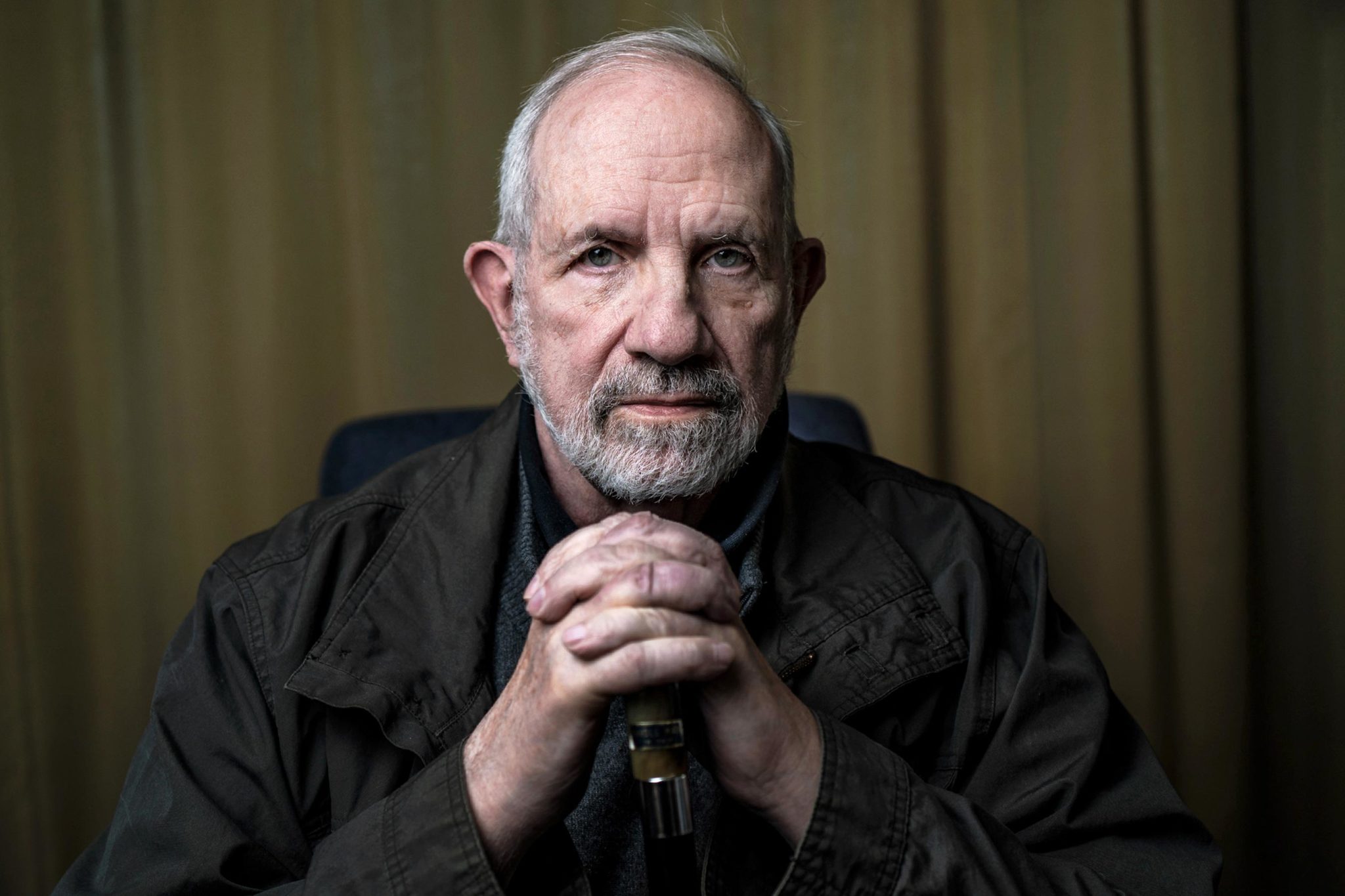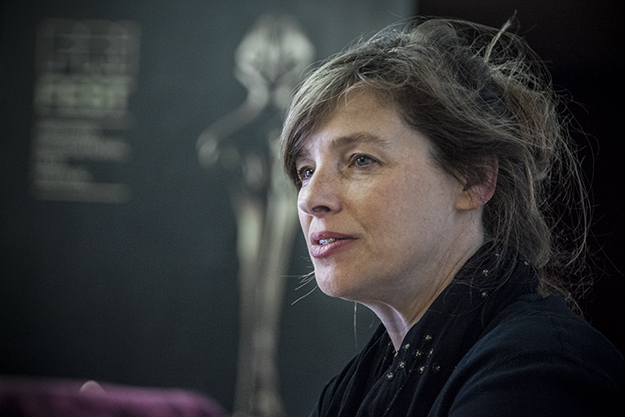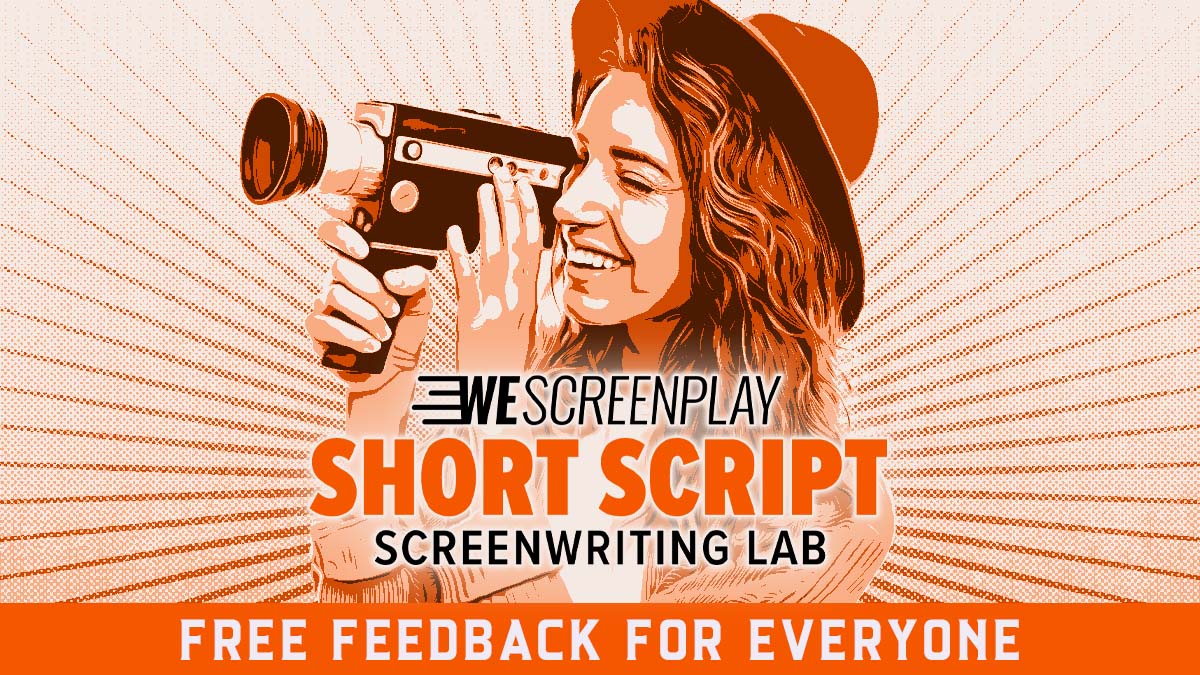 The average age of a screenwriter working on a top-grossing Hollywood film is 46 years old. However, many of the most decorated and iconic screenwriters and directors surpass this age, and they can offer a great deal of wisdom to the upcoming screenwriting generations.
The average age of a screenwriter working on a top-grossing Hollywood film is 46 years old. However, many of the most decorated and iconic screenwriters and directors surpass this age, and they can offer a great deal of wisdom to the upcoming screenwriting generations.
Even though age typically begets wisdom, it’s surprising how underrepresented older voices are within the screenwriting industry. The pros below have been at it a long time, but it’s never too late to pursue your passion. If you’re an older writer that hasn’t had a big break yet, consider entering the WeScreenplay Diverse Voices Competition.
In this article, we will hear advice and take tips from some of the oldest and most iconic male and female screenwriters and directors. James Ivory, Francis Ford Coppola, Brian De Palma, Steven Spielberg, Lucinda Coxon, Emma Thompson, Leslie Dixon, and Jane Campion all shed their wisdom on diverse screenwriting topics ranging from student films and novel adaptations to finding one’s voice and breaking gender roles.
1. James Ivory on Novel Adaptations and the Role of a Screenwriter
 James Ivory is an American director and screenwriter. He was born on June 7th, 1928 in Berkeley, California, and at 90 years old, he is one of the oldest screenwriters in Hollywood. In the span of his career he has won 50 awards, received an additional 55 nominations, and is the oldest person to win an Oscar at age 89.
James Ivory is an American director and screenwriter. He was born on June 7th, 1928 in Berkeley, California, and at 90 years old, he is one of the oldest screenwriters in Hollywood. In the span of his career he has won 50 awards, received an additional 55 nominations, and is the oldest person to win an Oscar at age 89.
Creative Screenwriting interviewed Ivory in 2017 for the 30th anniversary of the renowned film Maurice, an adaptation of E. M. Forster’s novel, which Ivory directed and co-wrote. When adapting a novel to a screenplay, such as Maurice, Ivory advises:
“If you’re going to adapt any novel, you want to stick to it. […] I believe you have to be true to what the author attempted to say. If you like the author’s tone of voice, it’s a good thing if that tone of voice comes through… you want to preserve that in some way if you can.”
Most recently, Ivory adapted the award winning 2017 film Call Me by Your Name from André Aciman’s 2007 novel. For his work, Ivory won the 2017 Academy Award for Best Writing Adapted Screenplay as well as three other awards from BAFTA, The Writer’s Guild, and Critic’s Choice.
Interestingly enough, Ivory has some nonconformist advice for directors, like himself, about the role screenwriters should have in the production of a film;
“Unless you yourself are an experienced writer with a gift for dialogue, a gift for deciphering human motivation, and a talent for descriptive scene-setting, trust your writer. Few directors are able to successfully to write their own screenplays from scratch. That is, indeed a god-given gift and is extremely rare.”
Oftentimes, directors and producers kick the screenwriter to the curb as soon as the script is done. Writers have little to no power in production past this point, but Ivory cautions against this modus operandi;
“When you have more or less gotten together the film you shot, and can bear to show it to anybody, invite your writer into the editing room so he, or she, can see where [it] went wrong… Directors like myself, who are sometimes too enamored of their work, need to have their eyes opened. Better by the screenwriter than by studio executives and focus groups later on.”
Whether or not Hollywood will heed his advice is a whole other story.
2. Francis Ford Coppola on Trusting One’s Vision, Finding One’s Voice, and Plunging in Broke
 Most of us screenwriters know the feeling of re-reading a script for the 100th time, and absolutely despising it. However, picking apart and “fixing” pieces of our plots in this state may be counterproductive because our distaste may be a product of needing a break rather than a constructive observation on the state of our work.
Most of us screenwriters know the feeling of re-reading a script for the 100th time, and absolutely despising it. However, picking apart and “fixing” pieces of our plots in this state may be counterproductive because our distaste may be a product of needing a break rather than a constructive observation on the state of our work.
Francis Ford Coppola, born on April 7th, 1939, has almost 60 years of experience in the film industry with a whopping 6 Academy Award wins and an additional 9 nominations ranging from his screenwriting abilities to his directive talent. Most iconic, he is known for directing The Godfather trilogy. Addressing self-critique, he noted in a 2011 99u interview;
“I believe that when you write something, when I write something, I turn it over and I don’t look at it. Because I believe the writer, the young writer, has a hormone that makes them hate what they’ve written. And yet, the next morning, when you look at it, you say, “Oh that’s not bad.” But the first second you hate it.”
There you have it: allow your mind and your eyes a chance to readjust and ground themselves before going back in to edit. Don’t drive yourself to despair.
Furthering his advice for young writers, Coppola affirms his belief that in the world of art, there are no new ideas devoid of the influence of old ideas, and therefore one can’t steal art because art is meant to be “stolen” and wrought forth in a new voice. In fact, this is the only way it can be done. As Coppola assures young writers,
“We want you to take from us. We want you, at first, to steal from us, because you can’t steal. You will take what we give you and you will put it in your own voice and that’s how you will find your voice. […] And that’s how you begin. And then one day someone will steal from you.”
A last note from Coppola has to do with plunging into the financially precarious industry of film, not a small risk. Copella advises,
“Try to disconnect the idea of cinema with the idea of making a living and money. Because there are ways around it. You work another job and get up at five in the morning and write your script.”
Perhaps this view is a little too idealistic, but as Coppola reiterates,
“I always had a good philosophy about risks. The only risk is to waste your life, so that when you die, you say, Oh, I wish I had done this.”
3. Brian De Palma on Student Filmmaking

American film director, screenwriter and writer Brian De Palma poses on March 29, 2019 in Lyon. (Photo by JEFF PACHOUD / AFP / Getty Images)
Brian De Palma is one of Hollywood’s most successful psychological horror screenwriters and directors. Among many famous movie scripts and directing roles, he wrote the highly acclaimed Raising Cain and directed Carrie, an adaptation of Stephen King’s novel.
Palma has worked in the film industry for over 40 years, but he originally went to school to study physics before going to grad school for film at Sarah Lawrence as its first male attendee.
Palma shares his wisdom for those studying film, a principle point of his being to cast good actors;
“The biggest mistake in student films is that they are usually cast so badly, with friends and people the directors know. Actually you can cover a lot of bad direction with good acting.”
Furthermore, Palma advises that it is not enough just to attend film school. Getting internships where the movie magic is happening is key to getting into the industry because there is only so much you can learn from those out of the industry.
“The real trouble with film school is that people teaching are so far out of the industry that they don’t give the students an idea of what’s happening.”
To put it simply: get good actors, and surround yourself with industry action no matter what stage of learning you’re at.
4. Steven Spielberg on Escape and Idiosynchronicity
 Of course, we need to include Steven Spielberg! As Hollywood’s most well-known director, working in the industry since 1957, and winning multiple Academy Awards, Emmys, and Golden Globes, (not to mention a huge assortment of other awards), he has a great deal of wisdom to share.
Of course, we need to include Steven Spielberg! As Hollywood’s most well-known director, working in the industry since 1957, and winning multiple Academy Awards, Emmys, and Golden Globes, (not to mention a huge assortment of other awards), he has a great deal of wisdom to share.
One of the beliefs he holds is that storytellers imbed pieces of themselves in the stories they tell, even if unconsciously. Nothing comes from nothing; the stories we tell originate either as a product of others sharing theirs or as components of our own lives;
“You can’t intellectually purge yourself of who you are. Whatever that is, it’s going to come out in the wash, the film wash. What you are is going to be relevant, if not to yourself, to the movies you make.”
Embrace the pieces of your own story and write them authentically and new, and yet, as Spielberg puts it,
“The public has an appetite for anything about imagination, anything that is as far away from reality as is creatively possible.”
A lot of intriguing storytelling is a balancing act between the very real emotional touchpoints we all experience and know to be true combined with bizarre fantasies and scenarios, personally unknown, that allow us all to momentarily escape our own worlds.
Lastly, Idiosyncratic stories are great; a degree of ambiguity allows a viewer to pick out the variations of a theme and meaning that’s most needed and relevant to them. However, this too is a balancing act and represents the age-old struggle and art of telling just enough to keep everyone in tune with the same emotional touchpoints;
“The most amazing thing for me is that every single person who sees a movie, not necessarily one of my movies, brings a whole set of unique experiences. Now, through careful manipulation and good storytelling, you can get everybody to clap at the same time, to hopefully laugh at the same time, and to be afraid at the same time.”
5. Emma Thompson on Screenwriting Basics
 First off, the oldest women screenwriters in Hollywood are significantly younger than the oldest men, a product of Hollywood being traditionally domineered by men. Keep it in mind that our oldest featured female screenwriters are primarily in their 60s as opposed to late 80s and 90s.
First off, the oldest women screenwriters in Hollywood are significantly younger than the oldest men, a product of Hollywood being traditionally domineered by men. Keep it in mind that our oldest featured female screenwriters are primarily in their 60s as opposed to late 80s and 90s.
Now, to Emma Thompson. Emma Thompson has been involved in the film industry for almost 40 years as an actress, director, and screenwriter. She has won an array of prestigious awards including an Academy Award for best writing adapted screenplay for Sense and Sensibility. Her screenplays also include works such as Nanny McPhee and Wit.
Keeping momentum going in a plot and avoiding stagnant periods can be more of a challenge than it at first sounds. Every scene matters, needs to be succinct, and should further the plot. Thompson shared her advice on how to accomplish this in a 2015 ScreenCraft interview;
“There should be an event in every scene. ‘What’s the event?'”
If there is no event, physical or psychological, the scene may be unneeded fluff.
Another topic in screenwriting basics that Thompson addresses is where to start a plot. At first, it can be hard to put one’s script down on paper, but;
“Start writing, then when you get to the end of it, try throwing out the first three scenes. See what happens.”
Throwing out the first three scenes of nerved writing, or reordering scenes, can have an incredibly drastic effect on a plot, resulting in exciting twists and turns and intriguing antithesis that the writer wouldn’t have considered had she/he not experimented with the cut and paste tools. As an experimental practice, save a first draft then mix the scenes up a little. You may hate it and choose to ignore it, but then again, you may be inspired by seeing things a little differently.
On a last piece of advice from Thompson, we cover the idea of stage directions. Screenwriters are encouraged to write as little and as succinct of stage directions as possible, only enough to get an imperative point across. Stage directions come down to the director’s vision and discretion; however, this doesn’t mean a screenwriter should omit stage directions or put little effort into them. As Thompson puts it;
“If the stage directions are very well written, I’m much more likely to take the writer seriously. If the stage directions are lazy or banal, I get bored very quickly. I make my stage directions as funny as I can.”
In short, if you’re a screenwriter and want “your vision” to be pictured on screen, craft your stage directions engagingly and thoughtfully. However, a screenwriter’s vision is seldom the final product. As Thompson admits;
“Sometimes [the screenwriter is] not at all [involved in the finished product]. Sometimes the screenwriter has been long forgotten and disposed of, possibly even killed and buried.“
Not every screenwriter is so lucky as to have their opinions valued as much as someone like James Ivory recommends. The best way to insure your stage directions are followed and that your vision is rendered on screen is to be lucky enough to be the screenwriter and the director.
6. Lucinda Coxon on Truth’s Relativity and Killing Darlings
 Lucinda Coxon was born in 1962 and has been writing for performance for decades. She wrote her first Hollywood screenplay in 2002. Most recently, she adapted the 2015 award winning film The Danish Girl from the 2000 novel by David Ebershoff, based on a true story.
Lucinda Coxon was born in 1962 and has been writing for performance for decades. She wrote her first Hollywood screenplay in 2002. Most recently, she adapted the 2015 award winning film The Danish Girl from the 2000 novel by David Ebershoff, based on a true story.
“Based on a true story,” is an interesting phrase in film production.
On the nature of truth, there has been a budding philosophical argument, bolstered by novelists such as Tim O’brien, that truth is malleable, relative, and primarily based off of emotion, (not concrete facts). Stated another way, the closer one can get to recreating an emotional truth of a situation, even if by altering physical facts, the truer the story becomes. Of course, this paradigm has a time and a place, and Coxon has some to say about this approach as it applies to screenwriting;
“I think any film that is based on life or real events you want it to be accurate but what really matters is that it’s truthful. That is not always the same thing. You really want to convey the spirit of the enterprise rather than ticking every single factual box.”
Leaving the realm of truth, Coxon reflects on the hardest parts about adapting a book for the screen;
“The hardest part is being brutal about leaving things out… I can let elements sit in the script and inform it for a while, but there’s a moment where you accept that something will never actually be in the film. It’s always a sad relief once you’ve hit ‘delete’.”
This practice is often referred to as killing one’s darlings: omitting otherwise great pieces of writing that simply don’t make their best debut in the given plot, and it is a skill (or a discipline really) that all writers of any medium have to learn.
And, of course,
“Even if the work’s a big success, some reviewer, somewhere, will always hate what you’ve done. But you just keep going. Do the next thing. The next thing.”
Retie your shoelaces and trudge on, because that’s the movie business! If you are driven and passionate, and have food in your belly, let the rest be background noise.
7. Leslie Dixon on Adaptations and Writing “Nasty” as a Woman
 Leslie Dixon moved to Hollywood at age 26 with hardly any money in her pocket and worked her way up through the ranks. After a few years, she got a job as a script reader and learned what devices make a lucrative script verses a flop. Her own screenplays started being purchased by production companies in the 1980s, and within the next 30 years, Dixon would continue on to write Ms. Doubtfire, Pay it Forward, and Freaky Friday, (among many others).
Leslie Dixon moved to Hollywood at age 26 with hardly any money in her pocket and worked her way up through the ranks. After a few years, she got a job as a script reader and learned what devices make a lucrative script verses a flop. Her own screenplays started being purchased by production companies in the 1980s, and within the next 30 years, Dixon would continue on to write Ms. Doubtfire, Pay it Forward, and Freaky Friday, (among many others).
On adapting novels, Dixon advises,
“There are source material that have a great idea, but not a single scene that would translate into a cinematic experience, so you have to change it.”
Stated another way, there are emotions and plot furthering mechanisms in books that don’t apply to the screen. A novel can get inside a character’s head and reveal motivations and desires that, in film, may only be revealed by altering dialogue, actions, or adding a character. This ties back in to what Lucinda Coxon was saying about the utmost importance of emotional truth, as compared to physical truth, in screenplays.
Furthermore, when thinking of adapting a book, one should ask themselves,
“Would I buy a ticket to this? That’s the best jumping off point for writing something. Because for every hundred novels that are written, there’s maybe only one that has a movie screaming to get out.”
Looking forward, an aspiration of Dixon’s is to write more “nasty” screenplays that men are usually hired for. As she bluntly states;
“I want to make sure I can do more pictures like Limitless, and that I am thought of as a chic who can write like a guy and that you would hire for a job that you normally might not hire a woman to do. Nasty, visceral thrillers…”
Breaking into the boy’s club of Hollywood, let alone getting hired to write “nasty thrillers” as a woman is no small feat. Cheers to Dixon!
8. Jane Campion on Breaking Gender Roles and Telling Stories
 Jane Campion has been working in film for almost 40 years, and she is the only woman to win a Palme d’Or award and one of only four female Oscar winning directors. Granted, this is principally the product of how many talented women are underwritten in their successes in film.
Jane Campion has been working in film for almost 40 years, and she is the only woman to win a Palme d’Or award and one of only four female Oscar winning directors. Granted, this is principally the product of how many talented women are underwritten in their successes in film.
To this, Campion reflects,
“I’ve spent my whole life asking, ‘What are the men thinking?’ and I think it’s time for them to ask, ‘What are the women thinking?’ in a different way than they would have done before.”
The way to achieve this is for more women to enter the industry, challenge its structure, and rise. As Campion urges,
“I would love to see more women directors because they represent half the population – and gave birth to the whole world. Without them writing and being directors, the rest of us are not going to know the whole story.”
Alas, the glass ceiling slowly cracks, and if you are a female screenwriter out there, let these featured women be proof that it can be done, and that it needs to be done. Campion herself is one of the most successful female directors, and on inspiring film ideas, she notes;
“When you make films, you are telling stories and you try to do things that you personally are trying to discover in the world.”
The stories we most effectively create, or are inspired to re-tell, often address themes that we are grappling with, or ideas that excite us, in our own lives. Creative inspiration can be found in the most simple moments and mundane movements of our own lives. Pay attention.
 Annemarie Lewis is an undergrad student at Colorado College where she studies Organismal Biology. Along with her love for animals and the natural environment, she has a passion for filmmaking. While studying biology, she has independently written three feature screenplays and directed several short films, spanning topics as diverse as homelessness, ecotourism, childhood loss, and the ruthless history of United Fruit Co. After getting her MFA in film, Lewis hopes to become a feature film writer-director powerhouse, giving voice to underrepresented histories and ecological truths.
Annemarie Lewis is an undergrad student at Colorado College where she studies Organismal Biology. Along with her love for animals and the natural environment, she has a passion for filmmaking. While studying biology, she has independently written three feature screenplays and directed several short films, spanning topics as diverse as homelessness, ecotourism, childhood loss, and the ruthless history of United Fruit Co. After getting her MFA in film, Lewis hopes to become a feature film writer-director powerhouse, giving voice to underrepresented histories and ecological truths.
For all the latest from WeScreenplay, be sure to follow us on Twitter, Facebook, and Instagram.

















